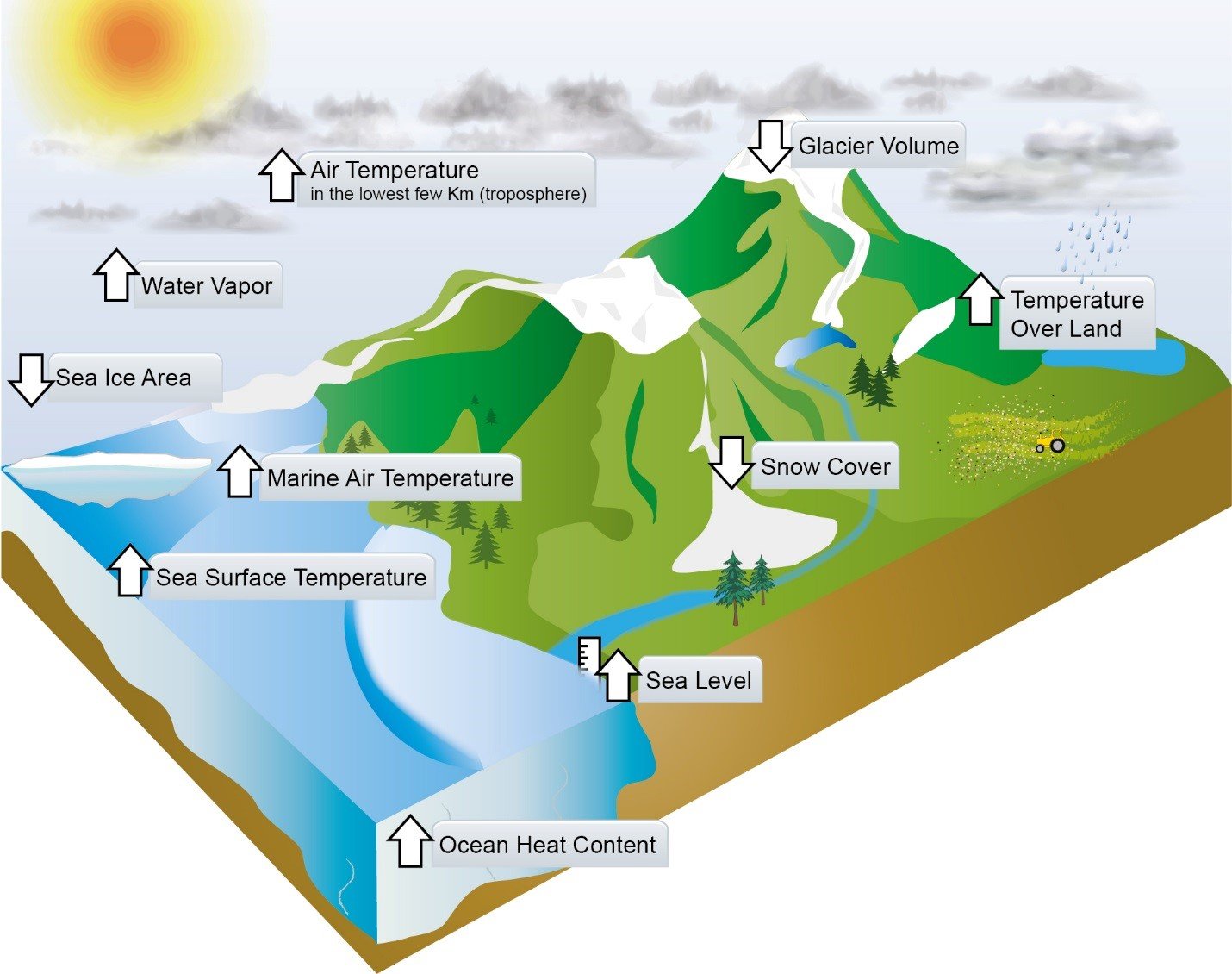UNPRECEDENTED WARMING


Earth's surface has undergone unprecedented (uncommon) warming over the last century, and especially in this century.
Every single year since 1977 has been warmer than the 20th century average, with 16 of the 17 warmest years on record occurring since 2001, and 2016 being the warmest year on recorded history.
As any farmer can tell, the natural patterns of climate have been altered. We know that warming-and cooling-has happened in the past, and long before humans were around. Many factors(called "climate drivers") can influence Earth's climate-such as changes in the sun's intensity and volcanic eruptions, as well as heat-trapping gases in the atmosphere.
But, what's causing today's unprecedented warming - are humans part of the cause?
Today's warming is primarily caused by humans putting too much carbon in the atmosphere, like when we choose to extract and burn coal, oil, and gas, or cut down and burn forests.
Today's warming is primarily caused by humans putting too much carbon in the atmosphere, like when we choose to extract and burn coal, oil, and gas, or cut down and burn forests.
Comments
Post a Comment